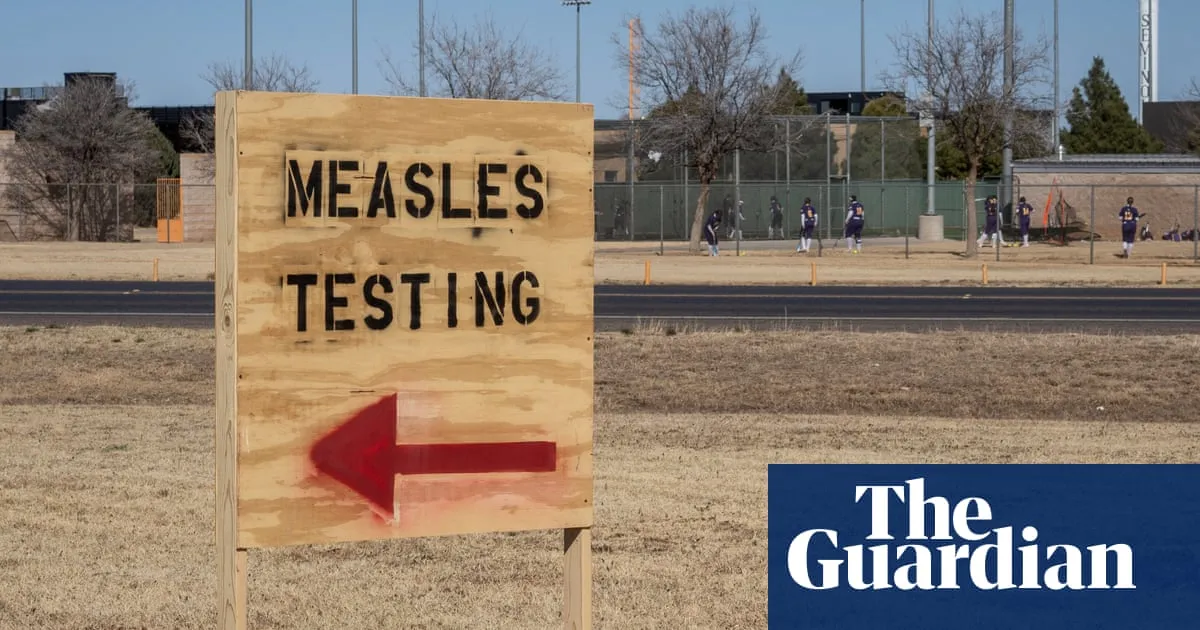
The United States is currently experiencing its most severe measles outbreak in 33 years, according to alarming data released this week. Driven primarily by a significant outbreak in Texas, the nation has reported more measles cases in 2025 than in any year since 1992. Experts in public health predict that the number of measles cases will continue to rise, particularly due to the summer travel season, which increases the potential for the disease to spread.
The most effective way to prevent measles is through vaccination. “Given that this is summer and more people are traveling throughout the US and internationally, the opportunity for the spread of measles increases,” stated Dr. Tina Tan, a pediatric infectious disease expert at Northwestern University. She emphasized the importance of ensuring that individuals, especially children, are up to date on their measles vaccinations and other routine immunizations. This proactive approach is essential for protecting families from measles and other vaccine-preventable diseases.
Despite the long-standing success of the highly effective measles, mumps, and rubella (MMR) vaccine in keeping the disease at bay, experts are warning that the US may be entering a “post-herd immunity” era. The disruptions caused by the Covid-19 pandemic have affected routine childhood immunization visits, bolstered the influence of anti-vaccine groups, and contributed to the rise of a wellness influencer culture that promotes vaccine skepticism. “Measles is only an airplane or car ride away. The high vaccination rates over the past 20 years have kept it in check,” explained Katherine Wells, the director of public health for Lubbock, Texas. “As vaccination rates decline, we see more vulnerable populations, which allows measles to spread.”
Measles is considered one of the most contagious diseases known to medicine. It presents with a distinctive rash, runny nose, high fever, and red, puffy eyes. While the majority of individuals recover from the illness, it can lead to severe complications. According to the CDC, about one in five people infected with measles require hospitalization, and pneumonia develops in one in 20 children affected by the disease. Additionally, serious complications can arise, including brain swelling that may result in permanent disability in one out of every 1,000 children, with mortality rates ranging from 1 to 3 in 1,000 infected children.
As of recent reports, the US has confirmed 1,297 cases of measles in 2025, according to data from the Johns Hopkins University’s Center for Outbreak Response Innovation. This figure slightly exceeds the 1,288 cases reported by the CDC, which has not updated its tally since Wednesday. Both counts have surpassed the 1,274 cases documented in the entire year of 2019. The last peak before this outbreak occurred in 1992, with 2,126 reported cases, prior to the US achieving measles elimination status in 2000.
Tragically, three individuals have died as a result of the 2025 outbreak, including two unvaccinated children in Texas and one unvaccinated adult in New Mexico, according to state health authorities. This highlights the serious consequences of the current measles surge. North Dakota has faced challenges in preventing measles cases as well; the state recently celebrated a 42-day milestone without new infections—a requirement to declare the end of an outbreak—only to have the situation change when an unvaccinated individual traveled out of state and contracted the disease.
In addition to the challenges posed by the outbreak, individuals like Robert F. Kennedy Jr., a prominent vaccine skeptic, have disrupted US vaccine policy. His controversial actions, including the dismissal of all 17 members of a vaccine advisory panel, have raised concerns among public health officials. In a recent meeting, the newly formed committee announced plans to review the childhood vaccination schedule and older vaccines, further complicating efforts to combat the measles outbreak.
In conclusion, as the US grapples with the worst measles outbreak in over three decades, it is crucial for individuals and families to prioritize vaccination. Maintaining high vaccination rates is essential for protecting public health and preventing the further spread of this highly contagious disease.